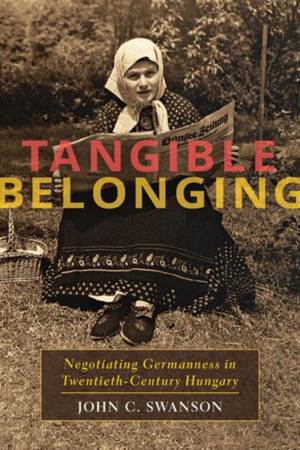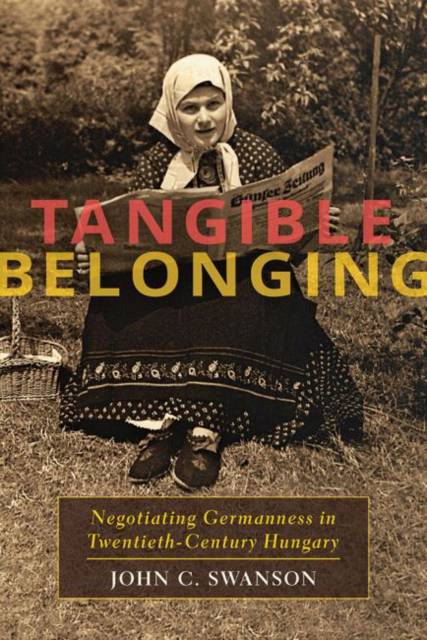
- Afhalen na 1 uur in een winkel met voorraad
- Gratis thuislevering in België vanaf € 30
- Ruim aanbod met 7 miljoen producten
- Afhalen na 1 uur in een winkel met voorraad
- Gratis thuislevering in België vanaf € 30
- Ruim aanbod met 7 miljoen producten
Zoeken
€ 99,45
+ 198 punten
Omschrijving
Tangible Belonging presents a compelling historical and ethnographic study of the German speakers in Hungary, from the late nineteenth to the late twentieth century. Through this tumultuous period in European history, the Hungarian-German leadership tried to organize German-speaking villagers, Hungary tried to integrate (and later expel) them, and Germany courted them. The German speakers themselves, however, kept negotiating and renegotiating their own idiosyncratic sense of what it meant to be German. John C. Swanson's work looks deeply into the enduring sense of tangible belonging that characterized Germanness from the perspective of rural dwellers, as well as the broader phenomenon of "minority making" in twentieth-century Europe. The chapters reveal the experiences of Hungarian Germans through the First World War and the subsequent dissolution of Austria-Hungary; the treatment of the German minority in the newly independent Hungarian Kingdom; the rise of the racial Volksdeutsche movement and Nazi influence before and during the Second World War; the immediate aftermath of the war and the expulsions; the suppression of German identity in Hungary during the Cold War; and the fall of Communism and reinstatement of minority rights in 1993. Throughout, Swanson offers colorful oral histories from residents of the rural Swabian villages to supplement his extensive archival research. As he shows, the definition of being a German in Hungary varies over time and according to individual interpretation, and does not delineate a single national identity. What it meant to be German was continually in flux. In Swanson's broader perspective, defining German identity is ultimately a complex act of cognition reinforced by the tangible environment of objects, activities, and beings. As such, it endures in individual and collective mentalities despite the vicissitudes of time, history, language, and politics.
Specificaties
Betrokkenen
- Auteur(s):
- Uitgeverij:
Inhoud
- Aantal bladzijden:
- 464
- Taal:
- Engels
- Reeks:
- Reeksnummer:
- nr. 233
Eigenschappen
- Productcode (EAN):
- 9780822964292
- Verschijningsdatum:
- 18/11/2016
- Uitvoering:
- Paperback
- Formaat:
- Trade paperback (VS)
- Afmetingen:
- 152 mm x 226 mm
- Gewicht:
- 879 g

Alleen bij Standaard Boekhandel
+ 198 punten op je klantenkaart van Standaard Boekhandel
Beoordelingen
We publiceren alleen reviews die voldoen aan de voorwaarden voor reviews. Bekijk onze voorwaarden voor reviews.








